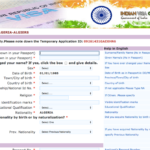Starlink, the satellite internet constellation operated by SpaceX, is poised to revolutionize Bangladesh’s digital landscape by providing high-speed internet access, especially in remote and underserved regions. This initiative aligns with the government’s vision to bridge the digital divide and enhance connectivity across the nation.
Regulatory Developments
The Bangladesh Telecommunication Regulatory Commission (BTRC) has been proactive in facilitating the entry of satellite internet service providers like Starlink. In October 2024, the BTRC drafted the “Regulatory and Licensing Guidelines for Non-Geostationary Orbit (NGSO) Satellite Services Operators in Bangladesh,” permitting 100% foreign direct investment in this sector. These guidelines outline a five-year license term, with provisions for broadband internet, IoT services, and more. Operators are required to establish at least one local gateway within Bangladesh before commencing services, ensuring compliance with national regulations.
Potential Benefits
Starlink’s low Earth orbit satellite network promises several advantages for Bangladesh:
- Enhanced Connectivity: By delivering high-speed internet to remote areas, Starlink can bridge connectivity gaps, enabling access to online education, telemedicine, and e-commerce, thereby fostering economic growth.
- Disaster Resilience: Satellite internet is less susceptible to terrestrial disruptions, ensuring continuous communication during natural disasters and aiding in emergency response efforts.
- Economic Opportunities: Improved internet access can empower rural communities, providing platforms for digital entrepreneurship and access to global markets.
Challenges and Considerations
Despite its potential, several challenges need addressing:
- Affordability: Starlink’s services are priced at approximately $120 per month, with initial hardware costs up to $599. In contrast, local providers offer 5 Mbps broadband for about Tk 500 ($5) per month, raising concerns about accessibility for the average consumer.
- Market Competition: Local internet service providers have expressed apprehension, questioning the necessity of satellite internet when existing services have reached most parts of the country. Ensuring a level playing field and protecting local investments are crucial considerations. citeturn0search0
- Regulatory Compliance: Operators must adhere to local laws, including establishing in-country gateways and ensuring lawful interception capabilities, to align with national security and data sovereignty requirements.
Industry Perspectives
Stakeholders have varied views on Starlink’s entry:
- Telecom Operators: Companies like Robi Axiata and Banglalink have welcomed the initiative, recognizing its potential to revolutionize data services and open new opportunities in backhauling, disaster management, and customer data utilization. citeturn0search4
- Internet Service Providers: The Internet Service Providers Association of Bangladesh (ISPAB) emphasizes the need to assess the suitability of such technology for the country and its people, considering existing infrastructure and investments.
Conclusion
Starlink’s impending launch in Bangladesh signifies a significant step toward achieving comprehensive digital connectivity. While the technology offers promising benefits, addressing challenges related to affordability, market dynamics, and regulatory compliance will be essential to ensure its successful integration into Bangladesh’s telecommunications landscape.


